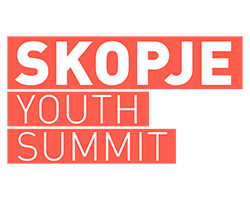Zagreb, 29 July 2020
President Milanović,
The 25th anniversary of the military and police operation Storm is coming soon. In this letter of ours, among other things, we are suggesting that in your opening speech you touch upon the human rights violations that took place during and after the Storm Operation. With such statement you would not only responsibly approach the victims whose rights have not been satisfied to this date, but also present the public with a comprehensive review of developments during and after the Storm operation, without emphasizing its positive sides alone, but also a negative side in terms of the crimes committed, which have not had judicial epilogue yet.
Also, in the text below we are going to point to some challenges Croatia is still facing with regard to non-effected mechanisms of transitional justice which you are in position to actively affect acting as the president of the state.
Although the military operation Storm meant reintegration of the territory of the Republic of Croatia, Croatian citizens who were forcibly removed have largely not returned and for this reason the reintegration has not been achieved in its entirety. It is important that you talk about this and that you do not forget that one of the fundamental values the Croatian Constitution relies on is national equality.
In your election campaign, you were emphasizing the importance of respect for human rights, the sense of community and mutual respect; we hope you will not abandon these promises in the course of your term.
Of all the countries successors of SFRY, other than Slovenia, only Croatia is a member of the European Union. Use that achieved political goal for Croatia to be a role model to its neighbours in how to invest in the fundamental values of the European Union, in particular in the higher standards of human rights and the rule of law. Initiate the setting up of the Regional Commission for the establishment of facts about war crimes (REKOM). Let Croatia be the country recognised in the region, Europe and worldwide for successful peace building and not for insisting on relativisation of war crimes and war criminals.
Invest material resources and take part personally in the commemorations and markings of unmarked places of suffering and mass human rights violations. Do it in co-operation with the representatives of victims and with them present. Civilian victims of war do not differ based on their ethnicity, but by whether their rights are recognised and enjoyed or not.
Advocate for commemoration of agreements based on which peaceful reintegration has been achieved and contribute to not forgetting peace activists; it is important that we as people are proud of courage of those who were building and trying to preserve peace. Do not forget that peacebuilding is our constitutional value.
Hate speech and crimes motivated by hatred which call for violence against Serbs are no longer an exception in our everyday life, but a rule which indicates growing intolerance. These also result from the mythologised roles of the Republic of Croatia in the wars of the 1990s. In your public appearances, emphasise that being guilty of crimes is established individually. Point out that there is no collective responsibility of a nation for committed crimes, but that we as society must invest in healing collective trauma caused by grave consequences of war. You will be able to make such contribution at bilateral and multilateral meetings with representatives of neighbouring countries, in which it is important that you clearly and unequivocally talk about the importance of reconciliation for building a better future for all people living in this region.
Contribute to the change of the prevalent nationalist narrative about what had happened in the 1990s and affect the development of joint narratives focused on victims. History has taught us that admission and not denial, relativisation and compensation contribute to the healing of post-conflict societies.
Take away medals of the Republic of Croatia from those convicted by the International Criminal Tribunal for Former Yugoslavia (ICTY) and national courts. Thus, not only would you restore the reputation of those who earned them based on their behaviour and respect for international humanitarian law, but you would also demonstrate that you are aware and faced with the fact that war crimes committed by the members of the Croatian army and military units are not only a political constructions of the prosecutors, and of ICTY panels, but the harsh reality of Croatian history.
Do not leave dealing with the past of the 1990s to the care of advocacy capacities of a few non-governmental organisations, but use a historical role, duty and responsibility you have and apologise for the crimes committed in the name of the Republic of Croatia.
We hope that you will invest efforts so as to contribute to achieving the foregoing in order for you to not become yet another state official who failed to recognise the importance or to invest the necessary energy for the change of prevailing nationalist narratives about the wars of the 1990s. Be determined not to leave future generations having to deal with the consequences of cowardice of those whose duty was and is to guide this country towards peace and not towards conflicts.
Youth Initiative for Human Rights Croatia






